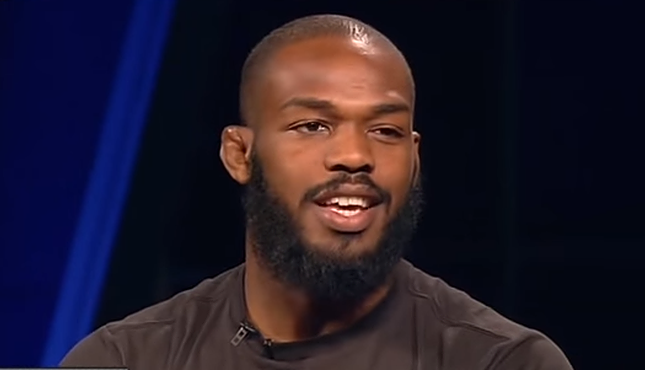mma / Columns
Why Jon Jones’ Legacy Is In Question

The moment Jon Jones first performed on a big stage in mixed martial arts was a revelation. He had just turned 21-years-old, had fought competitively for the first time only four months earlier, and he was good. More than good, really, because he was good in a way that other fighters – young or old – weren’t.
His athleticism allowed him to give form to a tremendously creative fighting mind. He would watch videos of unorthodox techniques on YouTube and effortlessly bring them to life in the cage as they popped into his brain. Anybody that watched him fight Andre Gusmao at UFC 87 – and relatively few did since this was before the days of televised prelims, when the only legal way to watch deep undercard bouts was to pay UFC $1.99 for access to a single bout days after the fight – saw the future. With his next fight appearing on the main card of one of the biggest shows of the year, the masses were treated to a glimpse of the future as well. After that performance, the only question was when Jon Jones would win the world championship.
The answer was two years later, when he gave light heavyweight great Mauricio “Shogun” Rua the beating of a lifetime. It made him the youngest champion in UFC history. Earlier in the day, after meditating in the park, Jones caught a mugger. The following week, he appeared on The Tonight Show, well before UFC’s top stars regularly appeared on late night programming.
It was a fairy tale, one of an all-around good guy outpacing the standard progress of his athletic field destined to end his career as the undisputed greatest fighter to ever live. He went on to beat Quinton “Rampage” Jackson and Lyoto Machida before the year was out, completing perhaps the single best calendar year any fighter has ever had.
Some time after that, Jones’ squeaky clean image began to crack. But this article is not about Jones’ personal issues outside the cage. If those were the only controversies of Jon Jones’ career, he would be well established at this point as the greatest fighter in MMA history by a country mile. As far as Jones’ legacy is concerned, the question of performance-enhancing drugs is a greater issue.
That question first reared its head the first time Jones fought Daniel Cormier. Leading into their January 2015 bout, the Nevada Athletic Commission subjected both fighters to random drug testing. Jones passed all of his tests, including CIR testing aimed to detect synthetic testosterone, but his extremely low testosterone level and fluctuating T/E ratio drew suspicion nonetheless.
The following year, again prior to a scheduled bout with Daniel Cormier, Jones failed a random USADA drug test for clomiphene and letrozole. Jones provided evidence that he accidentally ingested the substances from an off-brand male enhancement pill, and USADA independently confirmed the presence of both substances in the pills.
USADA suspended Jones for one year due to his negligence, and he returned to fight Cormier on July 29, 2017. The night before the fight, USADA randomly tested Jones again. He failed the test for turinabol, an anabolic steroid.
Taken individually, each situation could be excused. He passed each drug test prior to fighting Cormier the first time. All evidence pointed against Jones intentionally taking clomiphene and letrozole in 2016. The current situation must play out, but perhaps Jones will find that one of the supplements he declared he had been taking to USADA had been contaminated with turinabol.
However, this series of occurrences in relatively close succession will tarnish Jones’ legacy even if he presents a logical explanation for how turinabol turned up in his system. Only a negative “B” sample, which is still being tested, could change that, but it is extremely unlikely that the “B” sample will produce different results from the “A” sample.
There is no fairly tale anymore. Jon Jones’ legacy is forever complicated, whether by intention, carelessness, or extremely bad luck.
His ranking among the all-time greats becomes a question. On one hand, many of the fighters on that list competed in an era when there was little or no drug testing, and who is to say who was or wasn’t aided by performance-enhancing drugs in that era? On the other hand, Jones’ contemporaries, fighters like Daniel Cormier and Demetrious Johnson, are also on that list and have excelled in the USADA era without failing drug tests. Should we give them more credit for following the rules?
Time will aid us in answering these questions – it is difficult to fully grasp a fighter’s legacy while their story is still unfolding. For now, the only thing clear is that Jon Jones’ legacy is unclear.
Dan Plunkett has covered MMA for 411Mania since 2008. You can reach him by email at [email protected] and follow him on Twitter @Dan_Plunkett.







